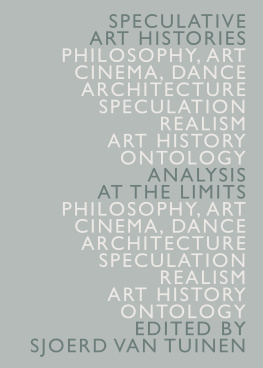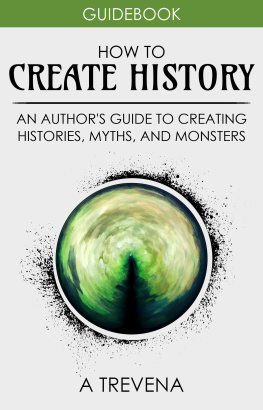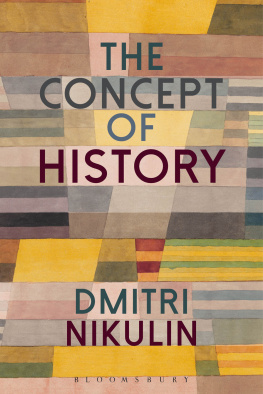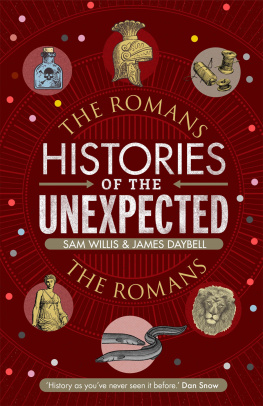Routledge Library Editions: Historiography
Volume 30
THE MEANINGS IN HISTORY
The Meanings in History
Alban G. Widgery
First published in 1967
by George Allen & Unwin Ltd
This edition first published in 2016
by Routledge
2 Park Square, Milton Park, Abingdon, Oxon OX14 4RN
and by Routledge
711 Third Avenue, New York, NY 10017
Routledge is an imprint of the Taylor & Francis Group, an informa business
1967 Alban G. Widgery
All rights reserved. No part of this book may be reprinted or reproduced or utilised in any form or by any electronic, mechanical, or other means, now known or hereafter invented, including photocopying and recording, or in any information storage or retrieval system, without permission in writing from the publishers.
Trademark notice : Product or corporate names may be trademarks or registered trademarks, and are used only for identification and explanation without intent to infringe.
British Library Cataloguing in Publication Data
A catalogue record for this book is available from the British Library
ISBN: 978-1-138-99958-9 (Set)
ISBN: 978-1-315-63745-7 (Set) (ebk)
ISBN: 978-1-138-19284-3 (Volume 30) (hbk)
ISBN: 978-1-138-19294-2 (Volume 30) (pbk)
ISBN: 978-1-315-63963-5 (Volume 30) (ebk)
Publisher's Note
The publisher has gone to great lengths to ensure the quality of this reprint but points out that some imperfections in the original copies may be apparent.
Disclaimer
The publisher has made every effort to trace copyright holders and would welcome correspondence from those they have been unable to trace.
THE MEANINGS IN HISTORY
ALBAN G. WIDGERY
London
GEORGE ALLEN & UNWIN LTD
RUSKIN HOUSE MUSEUM STREET
FIRST PUBLISHED IN 1967
This book is copyright under the Berne Convention. Apart from any fair dealing for the purpose of private study, research, criticism or review, as permitted under the Copyright Act, 1956, no portion may be reproduced by any process without written permission. Enquiries should be addressed to the publisher.
Alban G. Widgery, 1967
PRINTED IN GREAT BRITAIN
in 11 on 12 point Times Roman type
BY SIMSON SHAND LTD
LONDON, HERTFORD AND HARLOW
To the Memory of
MARION
whose affection was the best thing in my history
IN 1910 I was awarded the Burney Studentship at Cambridge University for studies relative to the nature of history. I have continued them all the years since. In 1961, in my Interpretations of History: Confucius to Toynbee I gave illustrations of various attitudes to and theories of history. I wanted something more widely useful than the several volumes that would be needed to cover the whole extent of my studies. That work was only incidentally critical.
From my interpretation of much of the work of Dr Arnold Toynbee, one reviewer got the impression that I am a Toynbeean. I certainly am not. As will be seen from this book, my methods are quite different from his. I am fundamentally opposed to many of his ideas. To make an adequate criticism of his work would require the writing of a volume. I am more interested in presenting my own view of history. He seems to me not to have given much philosophical reflection to the subject and conflict ing types of philosophy underlie different parts of his first ten volumes. There are some philosophical references to the works of Bergson and Smuts. The section: 'The Quest for Meaning behind the Facts of History' (Vol. X, pp. 126-44) is entirely inadequate and extraordinarily weak. I find meanings in history, not behind it.
I have learned very much from what I have recorded in my Interpretations of History, but I do not give an account of it here. With it as background, through the years I have endeavoured to formulate my own ideas of history. This volume presents them.
I have tried to make my writing as simple and direct as possible. That has been difficult but I hope it makes for easy reading. There are many repetitions in the book. Like those in history they are in different contexts and serve to emphasize main ideas. The book is not what some people call 'profound'. I have not been impressed, but rather repelled, from what many have thought profound, most often unintelligible statements. Two illustrations of such may suffice: the late Samuel Alexander's 'time is the mind of space' and Dr Toynbee's as to breaking 'the bonds of time and space'.
Of the vast amount of literature, occidental and oriental, I have studied in a long life, nothing has influenced my thought and action more than a simple passage in Aristotle's Nichomachean Ethics. Mter comments on Plato's attempt to arrive at a general idea of 'good', he wrote that the doctor has to deal with 'the health of a particular man: it is individuals he is healing'. While recognizing the place of concepts in thought I have concentrated my attention far more on the particulars of experience. That is evidenced in this book. It contains the substance of lectures on the Reynolds Foundation at Amherst College.
Alban G. Widgery
CONTENTS
Chapter I
Introduction
I
'WHY study history ?' That has often been asked. It is a reasonable question. Our activities are mostly directed to affairs of the present and preparations for the future. History concerns the past which we cannot change. In the educational systems of most countries children and adolescents are taught some history. The primary motive is probably to cultivate feelings and ideas of social solidarity with the people of their nation, to promote their acceptance of forms of social organization that have been developed in the past. In colleges and universities many students take history as a subject for their degrees as not requiring the skill of mathematics, the concentration of attention for the learning of languages, nor the hours in laboratories for efficiency in the natural sciences. They think, of course, erroneously, that for history all one needs is a good memory of the facts. Embarked on life after school or college, the very great majority make no further study of the history of the past and forget most they had previously learned. But they are interested in the history that is the living present: they listen for the news on the radio and television and their reading is of little else than newspapers and periodicals. I have heard it said that we could do with fewer historians; that there is scope for men as doctors, of which it is reported the United States needs at least 20,000 more. But it is a very interesting and significant fact of history that men have had an interest in past events and persons and have made records of them. Historians have played and play a part in the continuity of the life of mankind. They have had, and have, good reasons for the study of history.
It has been maintained that the chief purpose of the study of history is for its pragmatic value. It is supposed that from the successes and failures of people in the past we may learn something to guide our action in the present. There is little doubt that, for example, what the British learned from the American Revolution affected their colonial policies and made possible the present British Commonwealth of Nations. But the pragmatic value of history should not be over-estimated. The conditions of the present are in many respects vastly different from those of the past and call for ideas and forms of conduct differing from those of the past. Something may be learned from past mistakes of government but it is obvious that in many countries the conditions of the present require changes from types of government that were good in their own times and places. Good effects of the past are carried on more by customs and practical action than by the influence of historical records.












